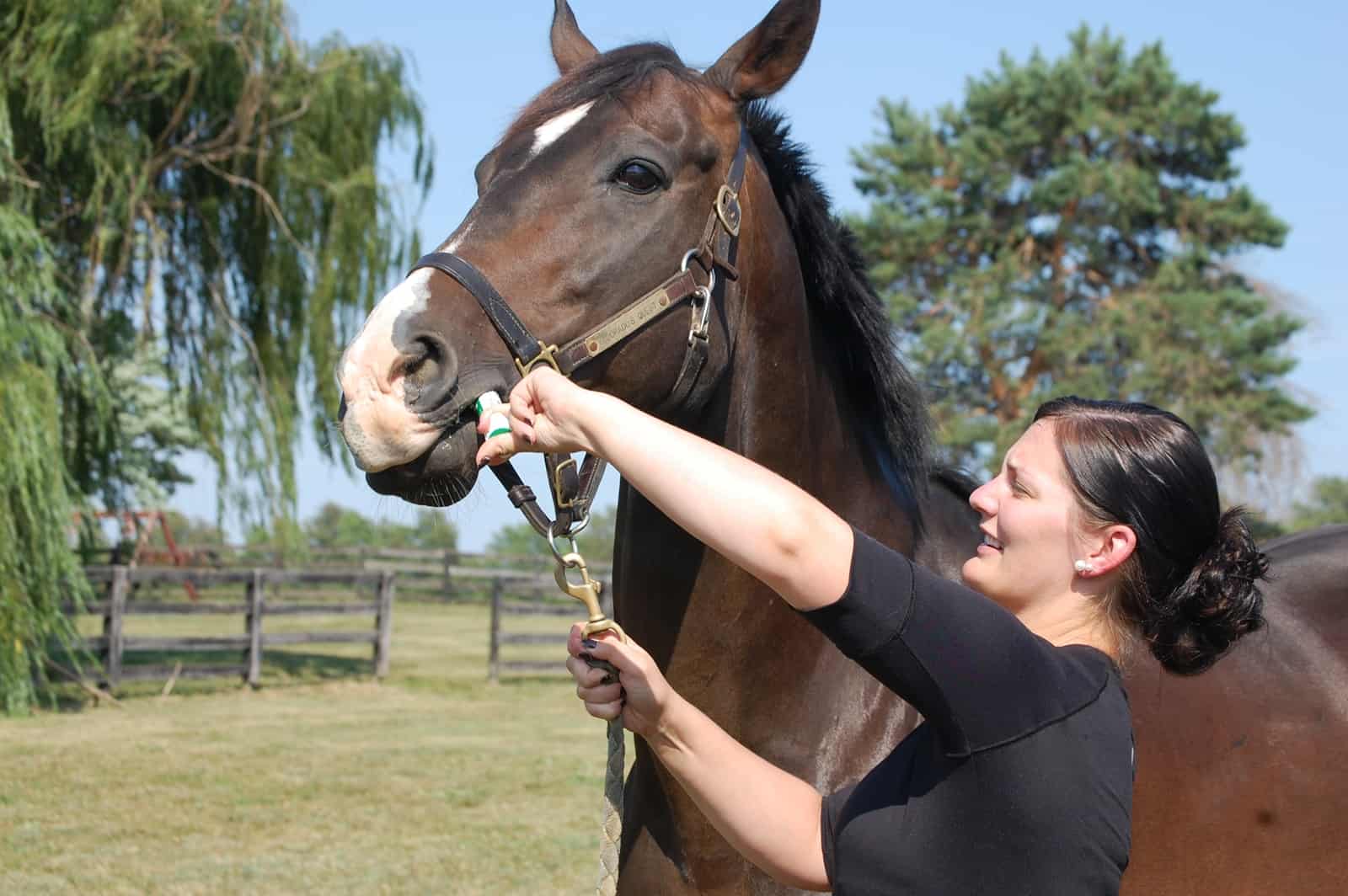[ad_1]

Grazing horses are susceptible to parasitic an infection and ensuing critical sickness, so house owners and veterinarians typically depend on the dewormer ivermectin, amongst different anthelmintics, to deal with and management inside parasites, together with massive and small strongyles. Nonetheless, scientists know little about how equine endocrine issues would possibly affect ivermectin’s efficacy, main a group on the College of Kentucky’s Gluck Equine Analysis Heart to analyze.
Endocrine issues comparable to insulin dysregulation (ID) and pituitary pars intermedia dysfunction (PPID, previously often known as equine Cushing’s illness) are extra widespread in horses ages 16 and older. Researchers have reported that about one-fifth of horses on this age group have been recognized with PPID. They’ve additionally recommended PPID would possibly negatively affect immune operate, probably making middle-aged or senior horses with PPID extra inclined to parasite an infection.
This would possibly clarify why strongyle fecal egg counts had been considerably increased within the senior horse inhabitants in a single examine, stated Martin Nielsen, DVM, PhD, Dipl. EVPC, ACVM, professor on the Gluck Heart, in Lexington. “Subsequently, you will need to know if remedy responses may be totally different in comparison with what we see in senior horses with out these situations.
Learning the Efficacy of Ivermectin in PPID Horses
Nielsen and his group of researchers divided 20 horses into 4 teams: six with ID, three with PPID, seven with PPID and ID, and 4 wholesome management horses. They measured every horse’s fecal egg depend on the day they administered ivermectin, two weeks after deworming, and as soon as weekly till eight weeks after ivermectin administration.
The group discovered the common egg depend discount in all teams two weeks post-treatment was at the least 99.7%. Worm eggs reappeared at six and 7 weeks within the ID and PPID/ID horse teams, respectively, whereas eggs reappeared at eight weeks within the PPID horse group and the wholesome management horses. The anticipated egg reappearance interval (ERP) in horses handled with ivermectin is 8-10 weeks, that means that two of the teams displayed shortened ERPs
“Ivermectin efficacy was excessive in all teams,” stated Nielsen. “Egg reappearance intervals (ERPs) had been additionally comparable between teams, though horses recognized with ID and ID/PPID confirmed an inclination in the direction of shorter ERPs than PPID horses and wholesome controls.” Because of the small variety of horses in every group, veterinarians and horse house owners have to interpret the outcomes with warning, he added.
Take-Residence Message
Nielsen stated he and his group consider ivermectin may be an efficient dewormer in horses with PPID; nevertheless, extra analysis with a bigger pattern dimension is required to verify these findings. “The primary conclusion is that extra research are wanted to guage if strongyle parasites harbored by ID horses would possibly show a unique response to ivermectin remedy,” he added.
The examine, “Ivermectin efficiency in horses recognized with equine endocrine issues” appeared in Veterinary Parasitology in June 2024.
[ad_2]
Supply hyperlink
